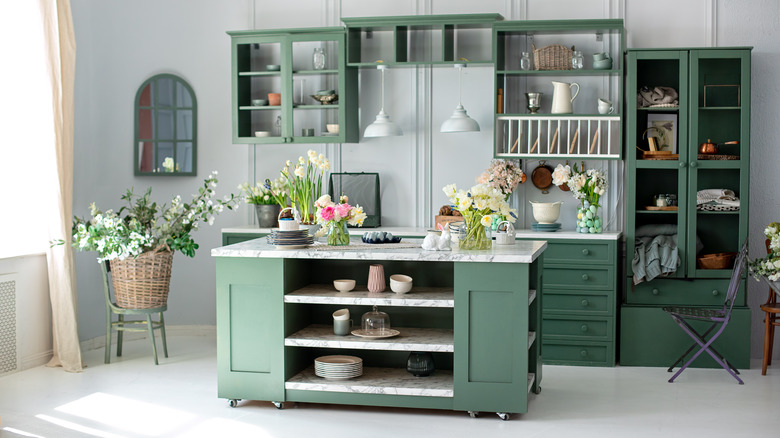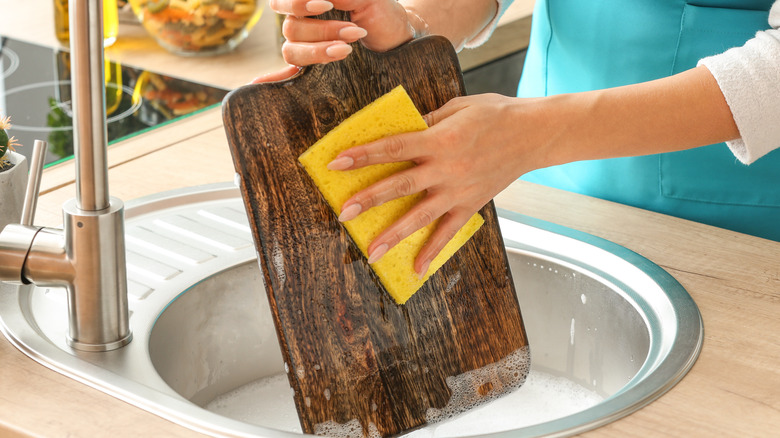The Dirtiest Thing In Your Kitchen Isn't What You Think
For many, the kitchen is their favorite room in the house. It's where the family gathers for hearty discussions and even heartier meals. It is the room that produces the scents of fresh-baked cookies and delectable Sunday bacon breakfast aromas. We're not here to soil the reputation of your favorite room in the house. However, rooms used as often as the kitchen tend to be the ones that get the dirtiest. "Kitchens get dirty because they're often the busiest spots in our homes," Georgia Dixon, a grove guide at Grove Collaborative, told Well+Good. "Meal prep that leaves lingering crumbs and bits of food attract bacteria, mold, and pests, so giving this area a little love and attention regularly is well worth the extra time spent."
So what is the dirtiest thing in your kitchen? Your first guess might be the cutting board. After all, many of us like to give it a quick wipe down and no more in between uses. According to Today, the cutting board has been found to have 200 times more coliform bacteria than a toilet seat. As cringeworthy as this comparison may be, your cutting board doesn't have to resemble a toilet seat in any way if you scrub it with hot water and soap in between uses. You can also put it in the dishwasher with bleach to kill any remaining germs.
This being said, is it really the dirtiest item in your kitchen?
Swap out your sponge often
Your kitchen sink and the microwave are also solid guesses for the dirtiest thing in your kitchen, but the winner may surprise you — your kitchen sponge is a filthy hotbed of bacteria. "The kitchen sponge is wet and moist, always soaking up coliform bacteria," Dr. Charles Gerba, a microbiologist and professor at the University of Arizona, told Today. "It's like bacterial heaven."
Unfortunately, cleaning your sponge won't get rid of all the potentially harmful bacteria. According to Eat This, Not That, sanitizing your sponge will only get rid of 60% of the bacteria. Even after cleaning, you have a new generation of bacteria growing after 20 minutes. To avoid this icky germ trap, consider buying in bulk. Your kitchen may be hard to keep squeaky clean, but swapping out your sponges for new ones is a great start to keeping your favorite room in the house free of unwelcome bacteria and germs


